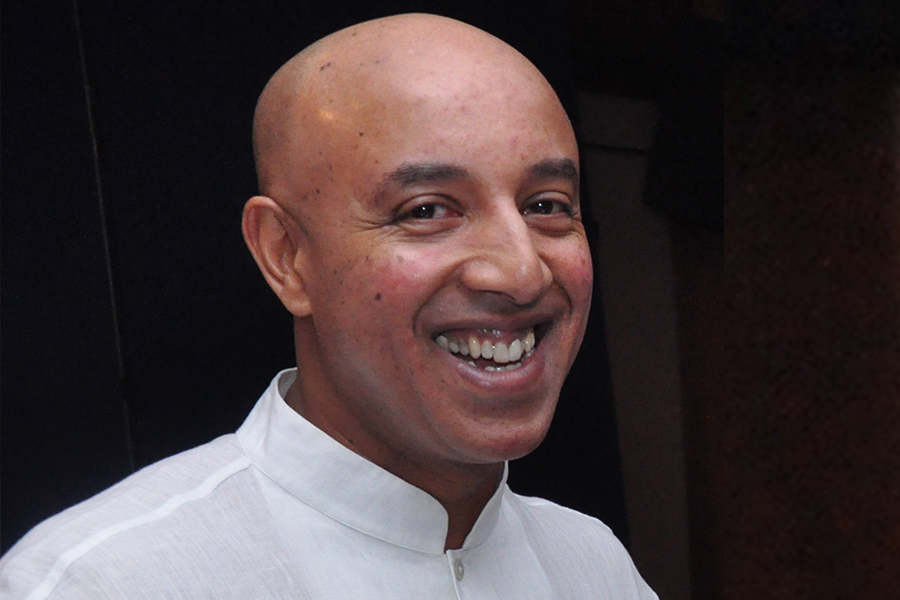
May 9 , 2020
By Christian Tesfaye
There have been a lot of suggestions coming from all corners of the political space on avoiding the impending constitutional crisis when lawmakers' time in office comes to an end this September. The most unreasonable and dangerous of these proposals is that of a transitional government.
It is unsurprising that many in the opposition have jumped on this suggestion. What boggles the mind is that many of these same individuals and political parties calling for a transitional government claim that the incumbent is taking an unconstitutional stance. Their solution to the supposed assault of the constitutional order is to throw away the Constitution altogether.
There is, undeniably, a certain logic to this view. They believe that what Ethiopia has in its hands at the moment is a crisis that cannot be addressed constitutionally. Whatever option the government takes will thus, presumably, be illegitimate in the eyes of the public.
They believe there is only one way to address this dilemma, and that is establishing a transitional government. There are various propositions on what this will entail. The most radical is to start from a blank piece of paper and write a different constitution altogether. Others suggest keeping the current constitutional order but transferring power from the lawmakers, once their term comes to an end, and giving it to an array of political parties that are believed to represent the public.
Both suggestions for a transitional government are impractical, not least for the obvious challenge of who it would be made up of. There is also a greatly dangerous element to this.
Who will be in charge of the army? Who would mobilise resources and execute plans in case of a resurgence of COVID-19 or natural disasters? And what happens if the members of the transitional government never agree on what constitutes a free and fair election?
Given what we know of opposition parties - their antagonism and lack of goodwill toward each other and their respective constituencies - the last one is not entirely implausible.
What we have in our hands is actually a lack of originality. Ethiopia’s successive opposition parties have been demanding a transitional government ever since the question of the legitimacy of government was being raised in the 1970s. It was far more plausible then when there was a coup d’etat by a military junta, which itself was refered to as a transitional military government. It is far less reasonable now when there is a state over which there is much more agreement in its arrangement.
We should reject this idea because it can lead to a very dark road. We should also reject it, because it is not the only option we have. Like many constitutions around the world, our framers have recognised that some articles might not be clear; that there might be constitutional gaps; or that society will progress far enough and some provisions might no longer become acceptable.
That is why they have included provisions for amendments and interpretation. They wanted us to consider the intent and spirit of the Constitution as well as build on it.
Currently, there is a debate on what can be done to avert this crisis constitutionally. This is good, because this offers an opportunity for further debate and discussion.
Now, more than ever, we have come to respect what our Constitution says, what it wanted to say and why. This offers the perfect opportunity for collective introspection. It will be a mistake of epic proportions if we sacrifice this opportunity for the sake of a proposition as unreasonable, unnecessary and unsafe as a transitional government.
PUBLISHED ON
May 09,2020 [ VOL
21 , NO
1045]


Editorial | Feb 01,2019

Fortune News | Apr 30,2022

Commentaries | Jan 16,2021

Fortune News | Jul 13,2019

Fortune News | Jun 26,2021

Fortune News | Feb 27,2020

Viewpoints | Apr 04,2020

Editorial | Apr 25,2020

Fortune News | Oct 12,2019

Radar | Mar 12,2022

My Opinion | 131656 Views | Aug 14,2021

My Opinion | 128020 Views | Aug 21,2021

My Opinion | 125983 Views | Sep 10,2021

My Opinion | 123607 Views | Aug 07,2021

Dec 22 , 2024 . By TIZITA SHEWAFERAW
Charged with transforming colossal state-owned enterprises into modern and competitiv...

Aug 18 , 2024 . By AKSAH ITALO
Although predictable Yonas Zerihun's job in the ride-hailing service is not immune to...

Jul 28 , 2024 . By TIZITA SHEWAFERAW
Unhabitual, perhaps too many, Samuel Gebreyohannes, 38, used to occasionally enjoy a couple of beers at breakfast. However, he recently swit...

Jul 13 , 2024 . By AKSAH ITALO
Investors who rely on tractors, trucks, and field vehicles for commuting, transporting commodities, and f...

Jun 28 , 2025
Meseret Damtie, the assertive auditor general, has never been shy about naming names...

Jun 21 , 2025
A well-worn adage says, “Budget is not destiny, but it is direction.” Examining t...

Jun 14 , 2025
Yet again, the Horn of Africa is bracing for trouble. A region already frayed by wars...

Jun 7 , 2025
Few promises shine brighter in Addis Abeba than the pledge of a roof for every family...

Jun 29 , 2025
Addis Abeba's first rains have coincided with a sweeping rise in private school tuition, prompting the city's education...

Jun 29 , 2025 . By BEZAWIT HULUAGER
Central Bank Governor Mamo Mihretu claimed a bold reconfiguration of monetary policy...

Jun 29 , 2025 . By BEZAWIT HULUAGER
The federal government is betting on a sweeping overhaul of the driver licensing regi...

Jun 29 , 2025 . By NAHOM AYELE
Gadaa Bank has listed 1.2 million shares on the Ethiopian Securities Exchange (ESX),...